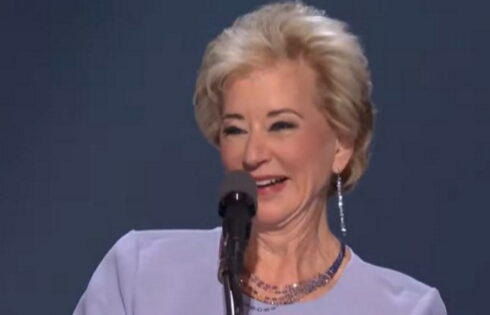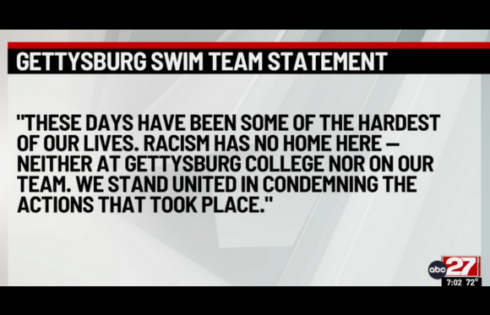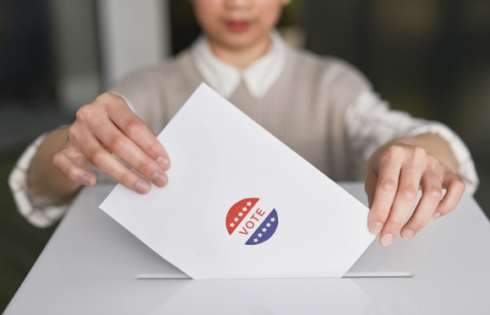“Not agreeing with an opinion shouldn’t be equated with feeling threatened by it.”
That from Chancellor Jose Sartarelli of the University of North Carolina Wilmington, who sent a campuswide memo on Thursday to strongly quash the notion apparently festering among some that coming across a chalk message they don’t like is akin to violence.
And if you think he’s only talking to students — think again.
Sartarelli’s message comes right after UNC Wilmington English Professor Hannah Dela Cruz Abrams erased away with her water bottle pro-Trump chalkings drawn up by students — then bragged about it on social media and stated she’d do it again.
“According to the photos, one of the messages that Abrams erased said ‘Vote Trump/Crooked Hillary is the establishment!!’ while another simply read ‘Vote Trump,'” reported Campus Reform. ” … In response to those who accused her of censoring legitimate political speech, Abrams claimed that several of the chalk messages rose to the level of ‘hate speech.'”
Sartarelli has set the record straight on that.
Below is his message, which was also posted on the university’s website:
Dear Campus Community:
There has been some attention in recent days on the university’s approach to free expression via the “chalking” of messages on our campus. In light of some misinformation, I wanted to share and clarify the policy that addresses chalking, and, more broadly, communicate with you about the atmosphere at UNCW toward free expression, especially as we approach the election.
You can read the official chalking policy on page 59 of this document, as part of the Code of Student Life. It is important to recognize that there will be times when chalking offends or even upsets us, individually or as a campus that stands for respect, inclusion, and a diversity of perspectives and people. Over the next several weeks, there will inevitably be an increase in expression, in many forms, about the candidates (presidential and others) and the issues at play. We are an institution of learning and a marketplace of ideas, and a campus that doesn’t just permit but actively encourages our population to engage in dialogue about sensitive topics. The safety of those who wish to express their viewpoints is of utmost importance. In turn, the safety of those exposed to those expressions is also critical. I do believe it is important to note that not agreeing with an opinion shouldn’t be equated with feeling threatened by it. That said, if you feel that an expression of an opinion poses a direct threat to you, please contact the Dean of Students (if you’re a student), the Office of Institutional Diversity and Inclusion or the Office of Human Resources (for employees), or University Police.
Our Seahawk Respect Compact is aimed at helping guide us with civility and respect throughout the exchange of ideas and opinions. The Compact is not an enforceable policy but an aspirational document, aimed at fostering a community of mutual respect and openness. These are among the values that guide us as an institution inside and outside of our classrooms. It has been some time since the Respect Compact was signed, in October of 2008, and this academic year, I plan to gather input from university constituents and consider revisions that will continue to reflect our values and our growth since the Compact was created.
In the meantime, I take seriously my obligation as your chancellor to encourage free and open expression while treating each other with respect and dignity – not just in your political opinions but always. We are Seahawks, and we must not let differences divide us. This election season is a timely opportunity to illustrate our campus’s regard for higher learning and the honor with which we approach the exchange of ideas. I am proud of the progress we have made, and motivated by the opportunity for even greater progress in how we treat each other and engage with the world around us.
Sincerely,
Chancellor Jose V. Sartarelli
Like The College Fix on Facebook / Follow us on Twitter




Add to the Discussion